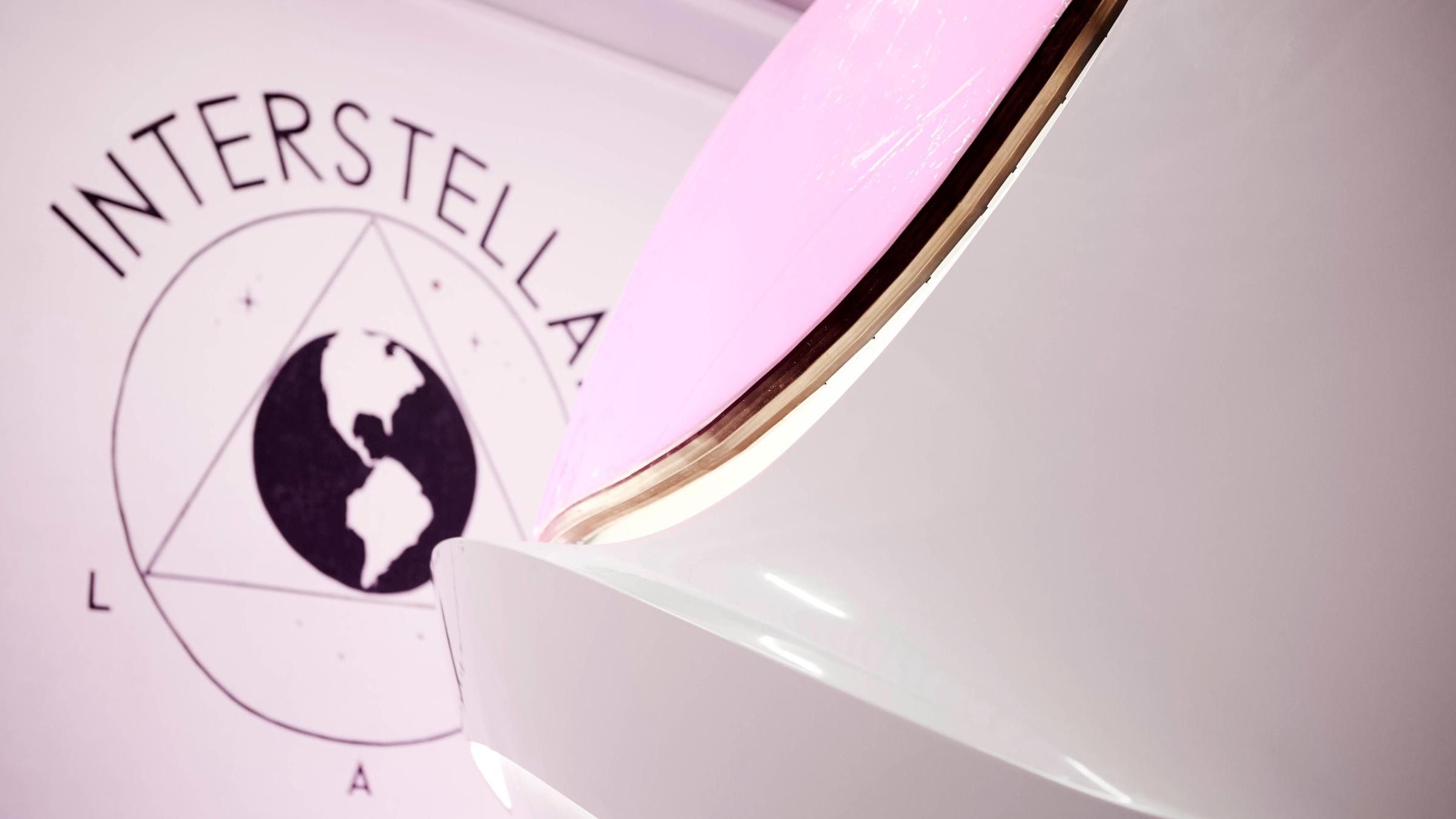Interstellar Lab, a leader in autonomous and intelligent farming platform announced a new partnership with Vast, a pioneering space habitation technology company, to integrate Interstellar Lab’s plant growth chamber, Eden 1.0, in the Haven-1 Lab, the world's first microgravity research, development, and manufacturing platform on the commercial space station. Eden 1.0 is scheduled to launch aboard Haven-1, a next-generation commercial space station, no earlier than May 2026.
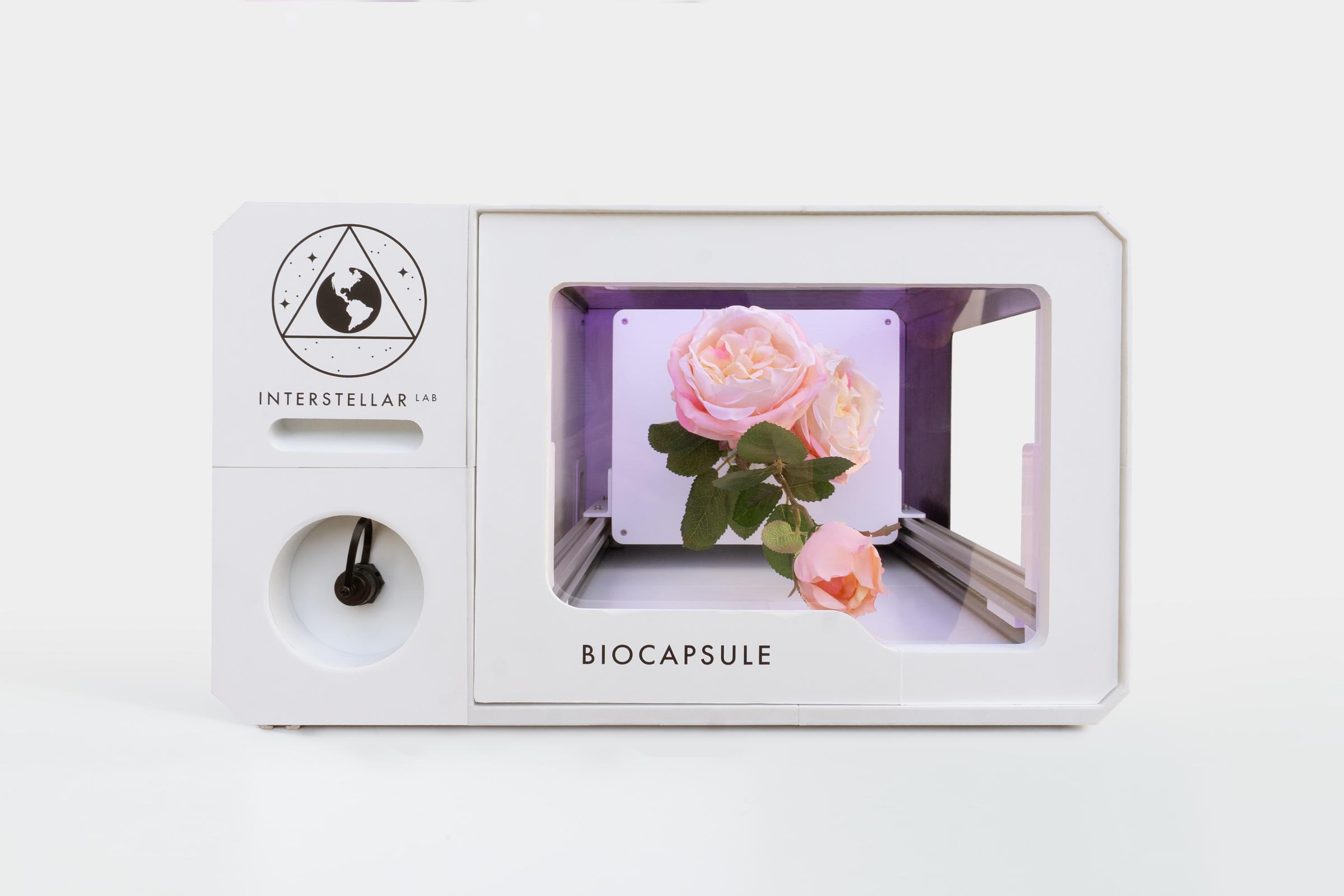
Interstellar Lab's BioCapsule Eden 1.0 Credit: Interstellar Lab
Interstellar Lab’s Eden 1.0 is a plant growth unit designed to conduct research on plants in a microgravity environment on a space station. A direct spin-off from Interstellar Lab’s food production systems NuCLEUS, which won the NASA Deep Space Food Challenge, the Eden 1.0 is a fully automated controlled-environment greenhouse with autonomous climate, light and fertigation control. Equipped with several sensors and cameras, Eden 1.0 captures real-time data allowing Interstellar Lab to perform comparable experiments on the ground. The goal is to measure and understand the impact of microgravity on plant growth.
Interstellar Lab will conduct cutting-edge plant research for cosmetics, pharmaceuticals and food application in the Haven-1 Lab. This research will lead to benefits on Earth by studying and improving crop resilience of various species. Furthermore, there are novel pharmaceuticals and cosmetic products that can be generated through this stress response in plants.
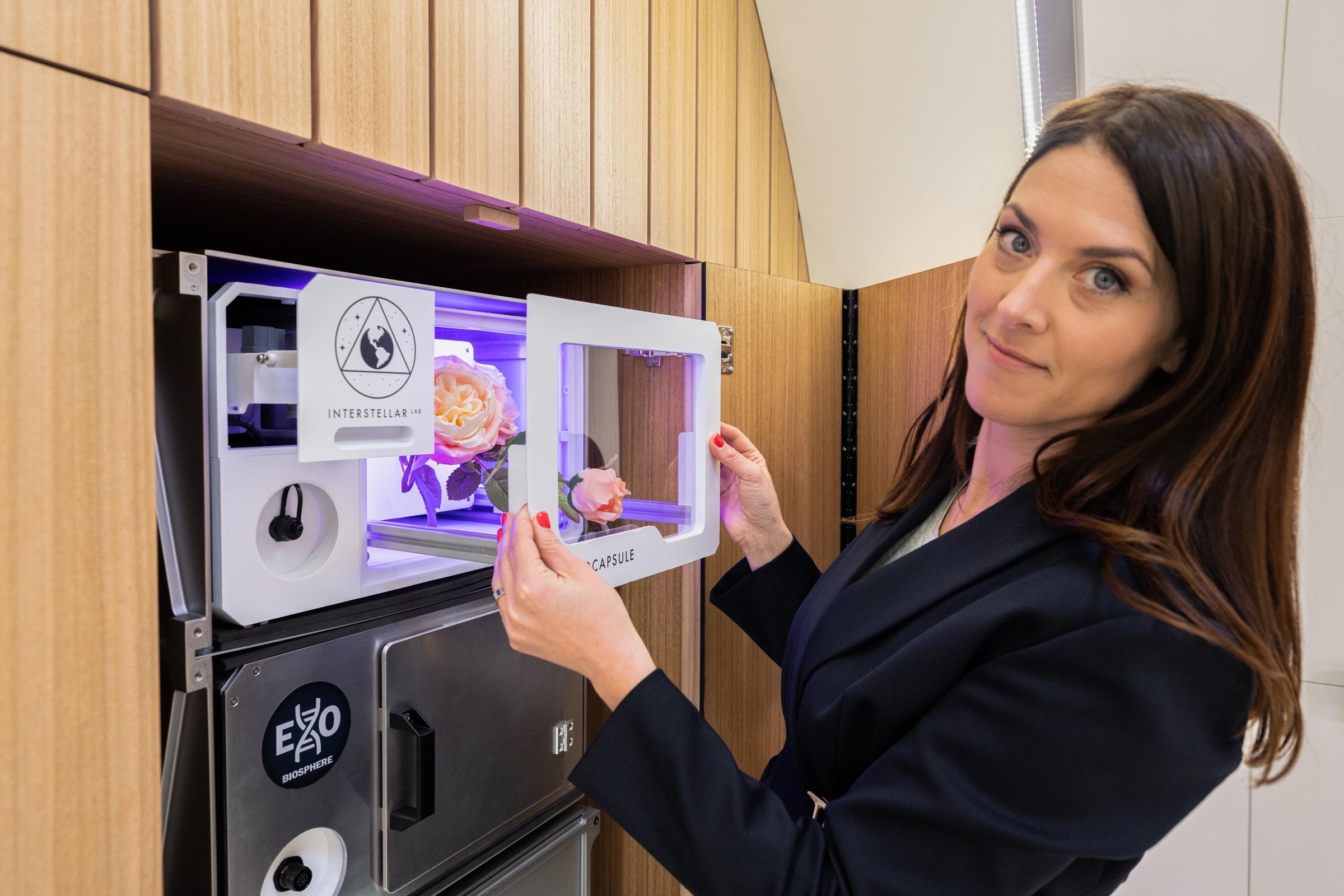
Barbara Belvisi with Eden 1.0 in Haven-1 Lab Experience - Credit: Vast
We are excited to take our technology into space in partnership with VAST. With Eden 1.0 in Haven-1 Lab, we can provide new plant growth capabilities in space to conduct research and measure how biological life responds to low gravity environments. It’s a crucial step towards our larger vision of providing advanced bioregenerative life support systems for future habitats on the Moon and Mars.
Barbara Belvisi, Founder and CEO (Interstellar Lab)
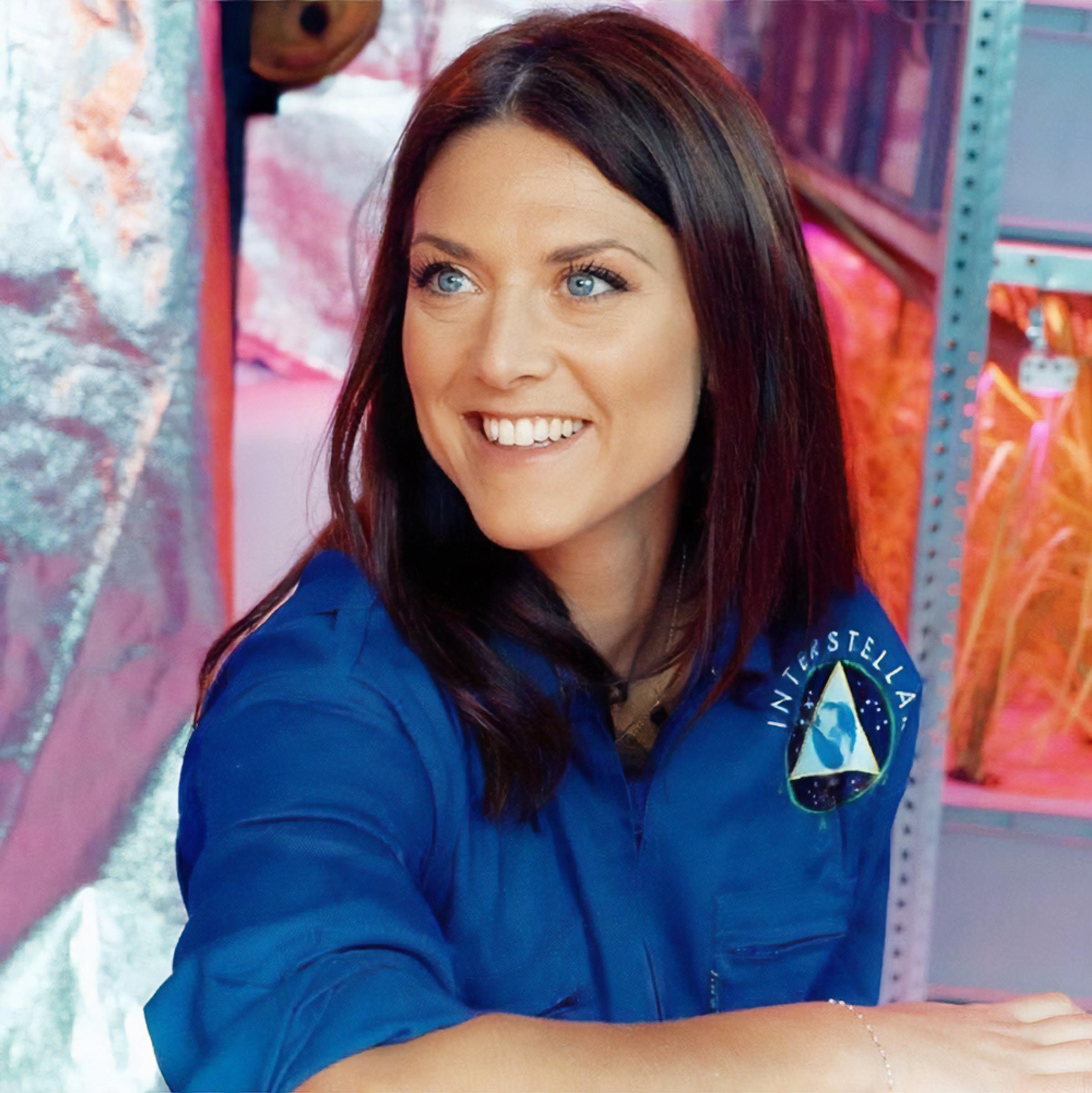
Vast’s Haven-1 Lab
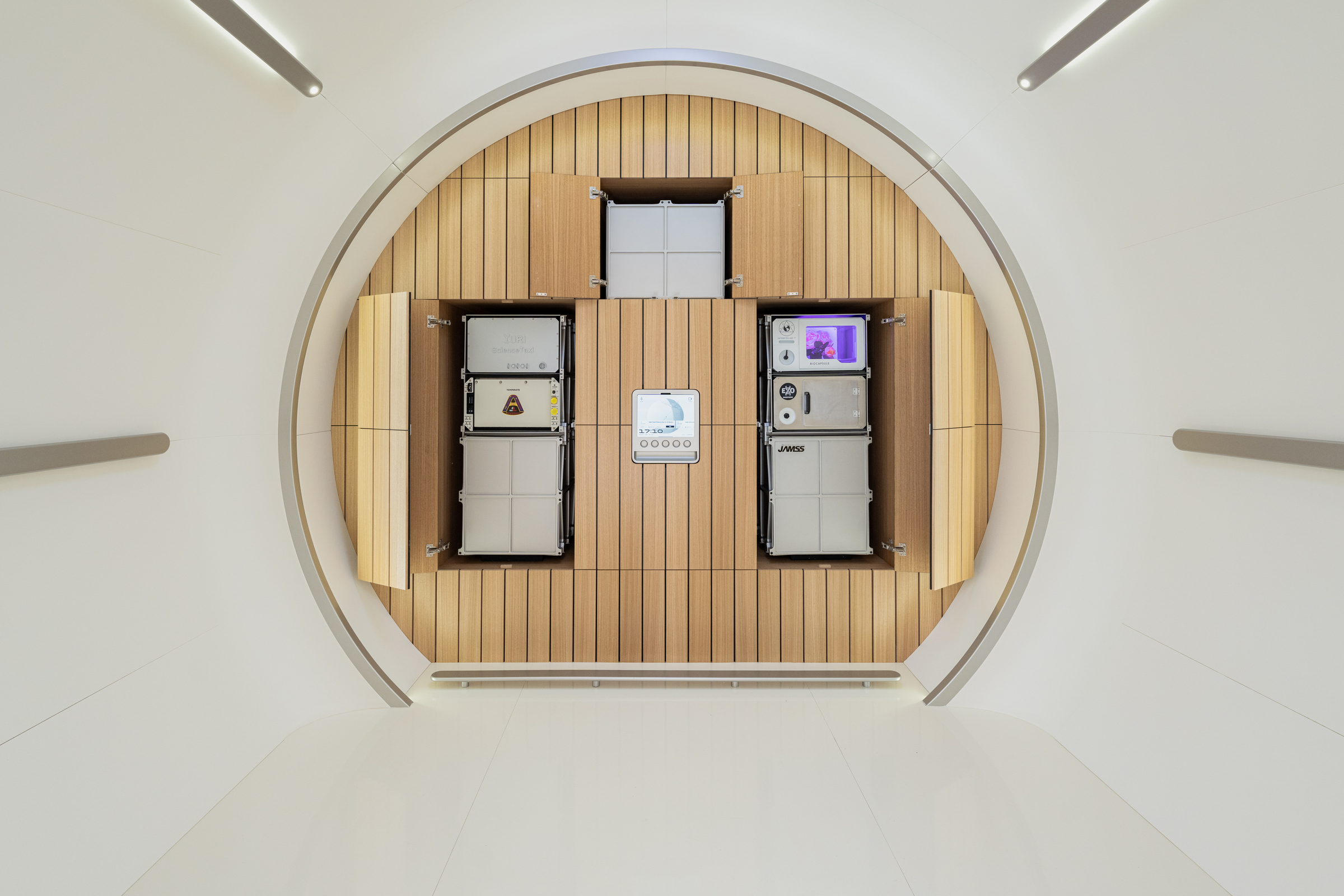
Haven-1 Lab Experience - Credit: Vast
Vast’s Haven-1 is set to be the first commercial space station designed for microgravity research, development, and manufacturing. The Haven-1 Lab will provide a state-of-the-art platform for a variety of industries, from biotechnology and pharmaceuticals to advanced materials and scientific experiments. The station features 10 payload slots, each capable of supporting experiments that require the unique environment of space. Haven-1 is scheduled to be the world’s first commercial station and will help foster a seamless transition ahead of the International Space Station (ISS) retirement in 2030.
Vast is committed to advancing groundbreaking research in low-Earth orbit.
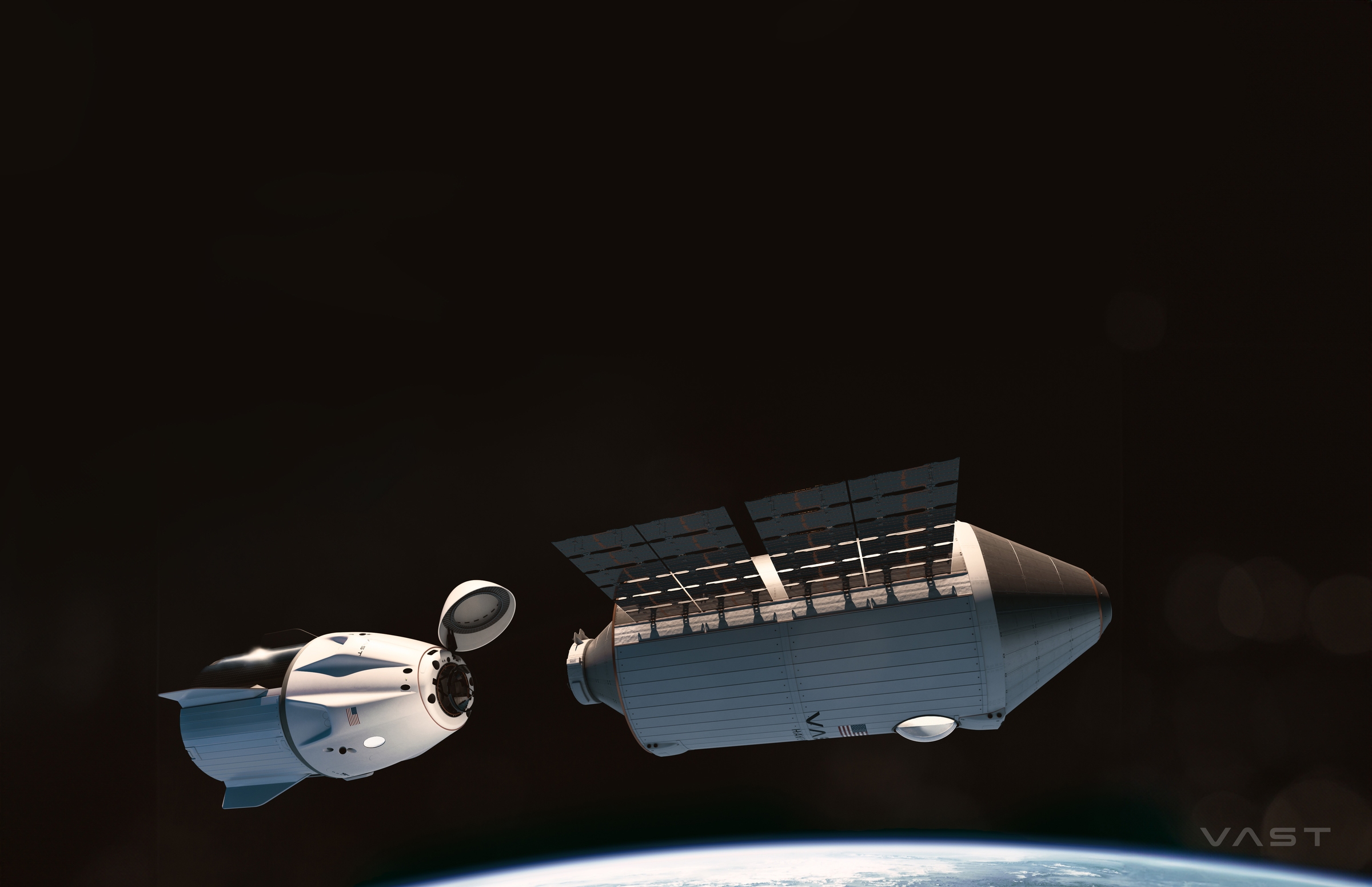
Illustration of Haven-1 and Dragon - Credit: Vast
Haven-1 is a collaborative hub for extending the vital work begun on the ISS, open to commercial, government, and research partners. Interstellar Lab’s vision aligns with our belief that space will drive breakthroughs with lasting benefits for humanity. We’re excited to see how Eden 1.0 will inform the future of growing plants in space.
Max Haot, CEO (Vast)

Interstellar Lab’s Eden 1.0: first BioCapsule sets the standard for crop sciences in space
Interstellar Lab announces Eden 1.0, a next-generation BioCapsule engineered for advanced life-science research aboard orbital stations. As a standardized single middeck payload, Eden 1.0 is fully compatible with existing and upcoming stations’ rack systems, offering plug-and-grow functionality that streamlines deployment, operation, and maintenance in microgravity.
Purpose-built for plant research in low Earth orbit, Eden 1.0 enables precise experiments on growth behavior, nutrient dynamics, phenotyping, and genetic adaptation in space environments. Its compact architecture integrates a closed-loop ecosystem to support regenerative life-support models - paving the way for autonomous food production in space.
Key hardware innovations include modular, serviceable components for in-orbit replacement and long-term use, custom LED lighting spectrums for targeted crop stimulation, innovative nutrient and water delivery for reliable and precise control over plant inputs.
At the core of Eden 1.0 is Gaia, Interstellar Lab’s AI-driven operating system. This onboard intelligence minimizes crew involvement while ensuring real-time optimization of plant health and system performance and benefiting from knowledge and learnings of Interstellar Lab BioPod and BioCapsule fleet. Astronauts and researchers can monitor the system and schedule operations remotely via the BioApp, a user-friendly interface designed for seamless and intuitive collaboration across agencies, industry, and academia.
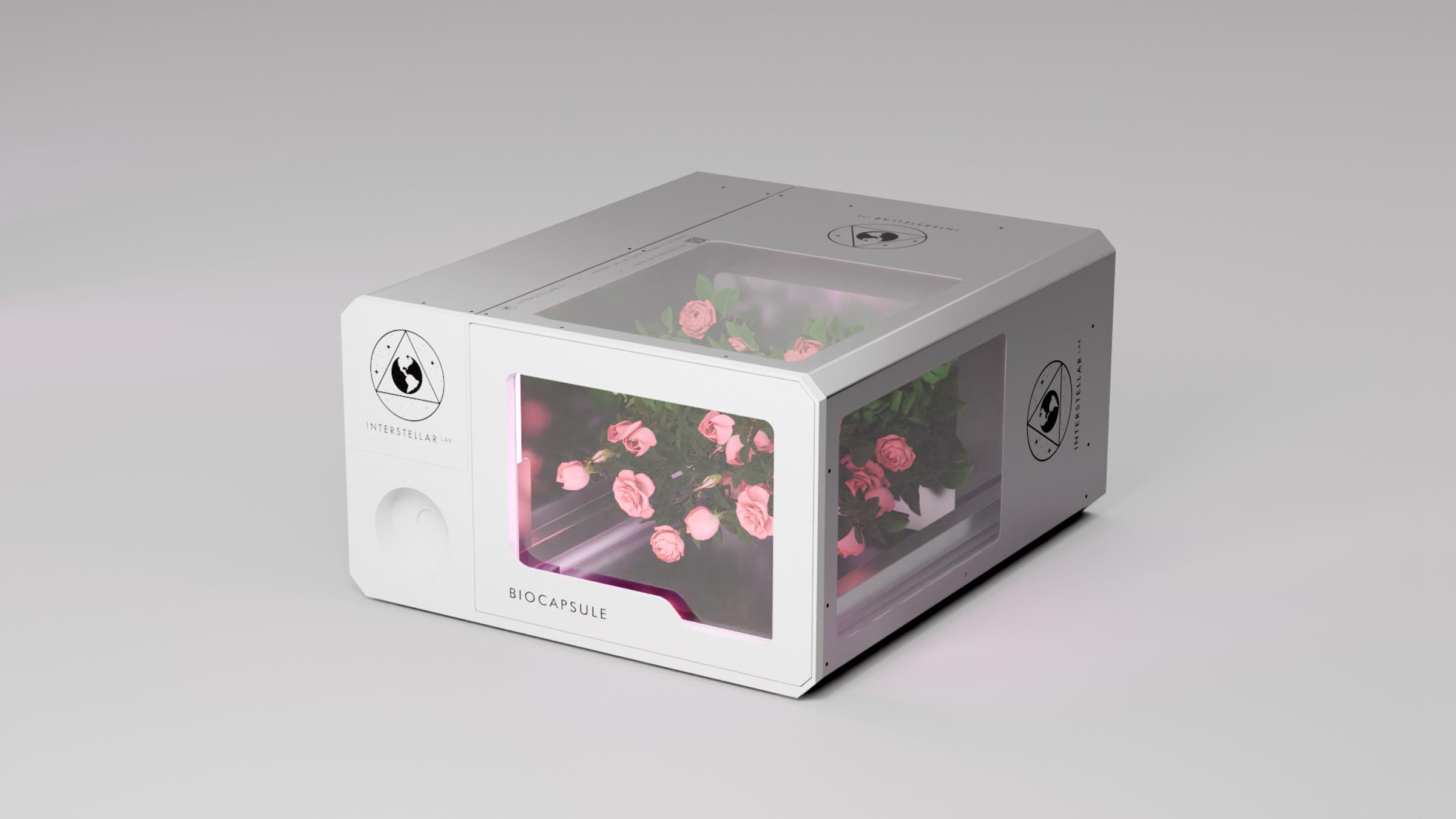
Interstellar Lab's BioCapsule Eden 1.0 - Credit: Interstellar Lab
Scalable across commercial platforms and future space habitats, Eden 1.0 represents a critical step toward sustainable agriculture in space - from orbit to the Moon, Mars, and beyond.
With Eden 1.0, Interstellar Lab sets the foundation for a new standard in orbital crop science, bringing modularity, autonomy, and scientific precision to the future of space-based life support.
Opening Access to Space-Based Agriculture
With its BioCapsule onboard Haven-1, Interstellar Lab is opening research missions slots to commercial, academic, and governmental partners. The BioCapsule is available as a platform-as-a-service, enabling tailored research missions focused on the impact of microgravity on plant biology, from trait enhancement and molecular expression to novel biomaterial production.
This model allows organizations to run targeted, high-value experiments in space without the complexity of hardware development, while leveraging ground capacity to measure impact of microgravity. Mission slots for the first deployment campaigns are now open - inviting pioneers in agtech, biotech, cosmetics, pharmaceutics and space science to join the new era of orbital research.
Interstellar has been pioneering plant research with Groupe L’Oréal, Robertet and dsm-firmenich on the ground. Looking to bring LEO capacity to the next generation of science-driven innovation - where Earth’s most ambitious ideas take root in space.
Looking Ahead: Expanding Life in Space and the Frontiers of Space Exploration
This partnership represents the first step of Interstellar Lab’s ambitious space program.
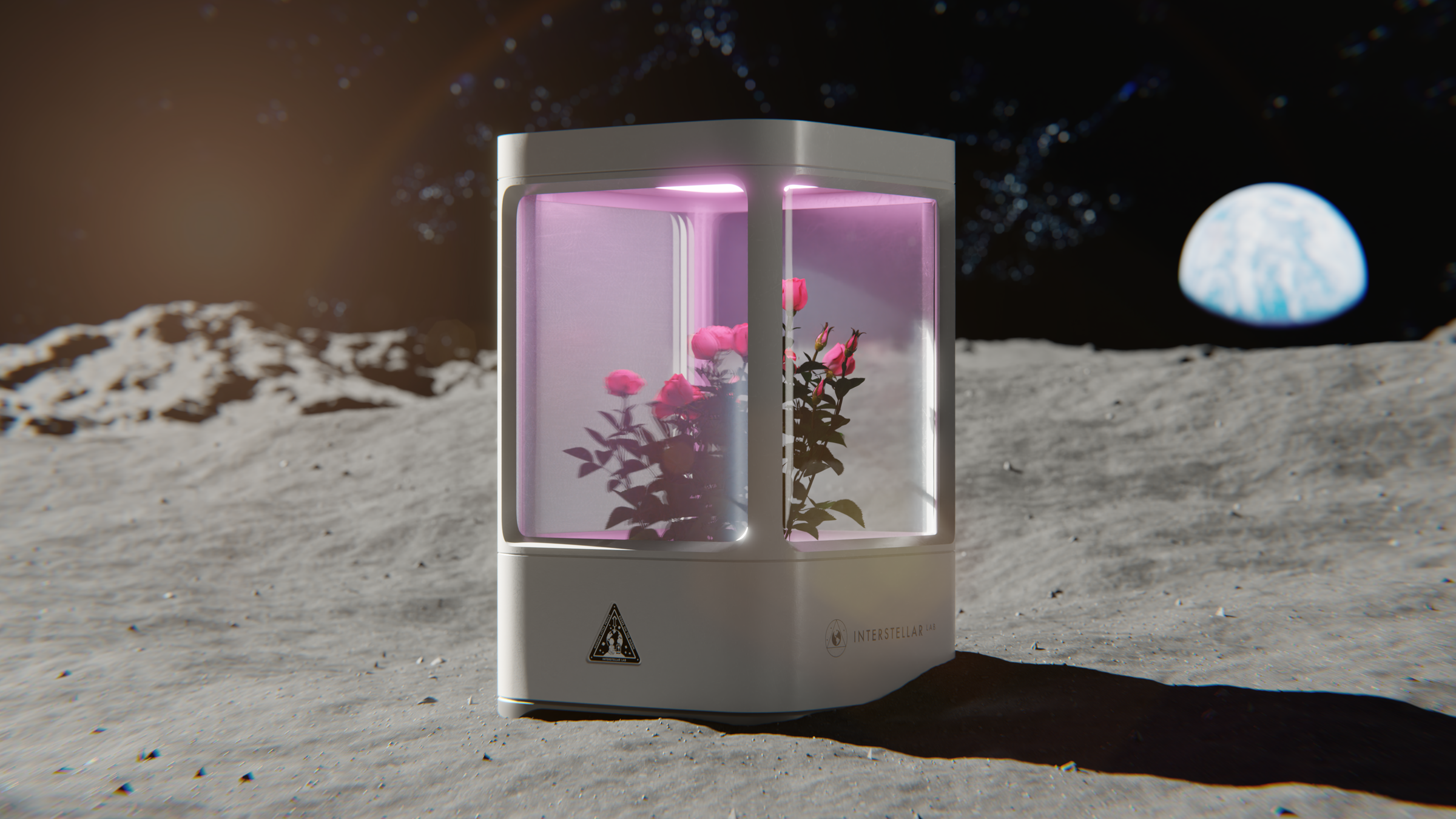
Interstellar Lab's Lunar BioCapsule Bloom 1.0 - Credit: Interstellar Lab
First, we will start by integrating Eden 1.0s with existing stations to conduct biological research and grow food. Haven-1 Lab is the perfect partner, and we will be ready to fly onboard starting 2026. And our vision doesn't stop there. We want to enable long-term human presence in space and help life to expand. For this, we need to create a bioregenerative life support system with growing food, purifying air, and recycling water. This is key to build a self-sustaining civilization on Mars
Barbara Belvisi, Founder and CEO (Interstellar Lab)

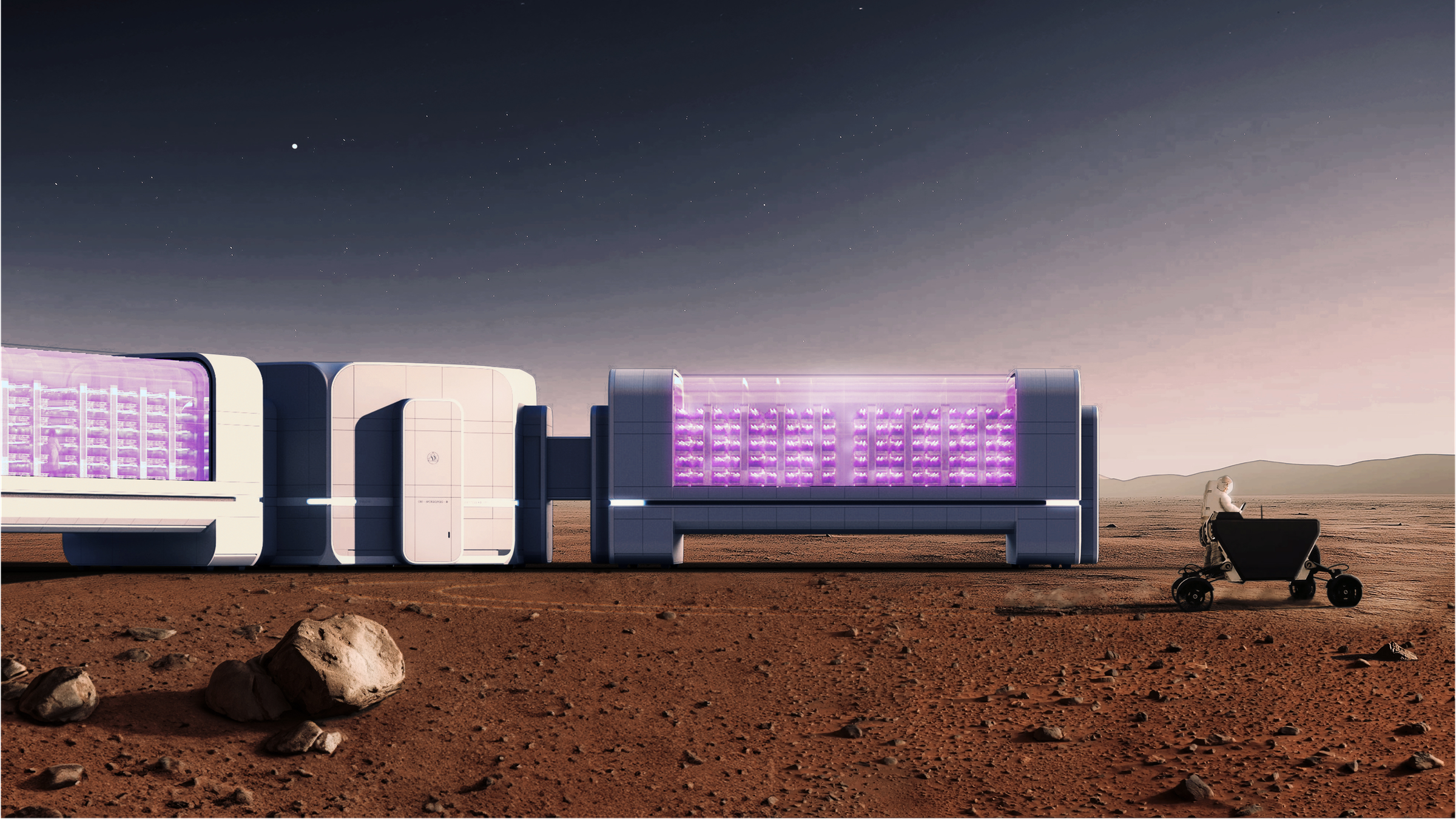
Interstellar Lab's Mars BioPod Concept - Credit: Interstellar Lab
About Interstellar Lab
Founded in 2018 by Barbara Belvisi, Interstellar Lab is an American French company whose mission is to preserve life on Earth and help it expand to space. They develop autonomous AI-powered greenhouse systems, BioPods and BioCapsules that create ideal conditions for plants to grow faster and better. On Earth, they provide solutions to the health, beauty and food industry for efficient production of high-value botanicals. In Space, they provide a scientific platform to study how plants grow in low earth orbit while preparing for Lunar and Martian deployment. Located between south of Paris (France) and Merritt Island (USA), the company of 40 engineers and scientists is looking to expand in Texas in 2025.
About Vast
Founded in 2021 by Jed McCaleb, Vast is developing humanity’s next-generation space stations and pioneering the path to long-term living and thriving in space. Haven-1, scheduled to be the world’s first commercial space station, is currently in development and is expected to launch NET May 2026. Vast is also developing Haven-2, the proposed successor to the International Space Station (ISS), designed to serve NASA’s Commercial LEO Destinations (CLD) program as a micro-gravity laboratory in space. Vast’s long-term ambition is to create artificial gravity habitations that enable humans to live in space, reaffirming its commitment to ensuring a spacefaring future for all.
Press Contact:
Interstellar Lab
press@interstellarlab.earth |
Vast
press@vastspace.com |











